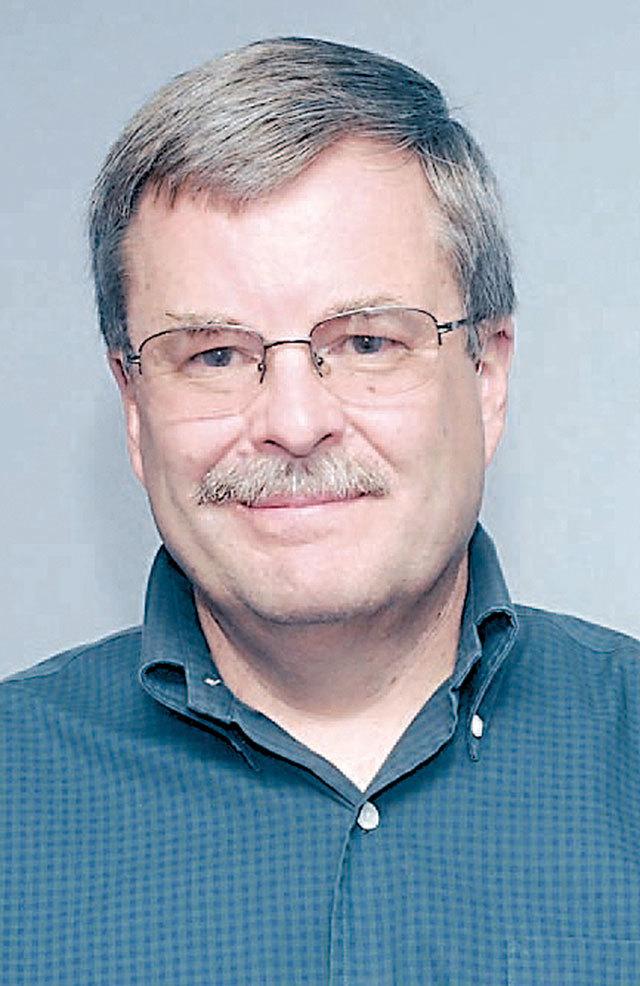PORT ANGELES — City Council members will discuss a timeline tonight for determining the legality of electing an entirely new City Council as part of a historic ballot measure that city residents would vote on Nov. 7.
Answering that question might require the city to a hire a lawyer outside City Attorney Bill Bloor’s office, City Manager Dan McKeen, who will give a verbal report at the end of tonight’s meeting, said last week.
The meeting begins at 6 p.m. at City Hall, 321 E. Fifth St.
It’s been nearly a year since last May when residents upset at the council’s continuing support for fluoridating the municipal water supply, led by Our Water, Our Choice!, gathered more than 1,000 signatures — twice the total required — to put the second-class city measure on the ballot.
Anti-fluoridation forces were subsequently successful in also getting the council to stop fluoridation Aug. 4 at least until an advisory measure is voted on — a measure which also will be on the Nov. 7 general election ballot.
If voters approve the second-class city measure, the city’s 46-year-old form of government would revert from a code city with broad powers to its pre-1971 second-class city form with fewer powers, and lacking, for example, the ability to hold citizen initiatives and referendum elections.
According to the nonpartisan Municipal Research and Services Center, a code city allows “broad authority in all matters of local concern,” while a second-class city has “only those powers expressly or implicitly granted by the Legislature.”
But according to the petition that would form the basis of the ballot measure’s wording, voters also would decide to change to a second-class city “in order to elect a full new city council.”
A majority of the council could change anyway during the same Nov. 7 election because their terms end.
Four of seven City Council members — Brad Collins, Dan Gase, Lee Whetham and Mayor Patrick Downie — also are up for election to new four-year terms.
Collins, Gase and Downie — who voted in favor of fluoridation — are not running.
Whetham, who voted against fluoridation, said Monday he intends to seek re-election.
But if the second-class city status is approved, will that nullify the elections of four council members and throw out incumbents Michael Merideth, Sissi Bruch and Deputy Mayor Cherie Kidd, too?
“There seems to be some confusion over that,” McKeen said. “Does state law allow the election of a full City Council if we revert back to a second-class city? I don’t know the answer to that.”
Another question, according to McKeen: What does it mean for a city to lose its home-rule status?
“Because this has never happened in the history of the state of Washington, there are a lot of things that are going to take a little time to work through some of those questions,” McKeen said.
The city and Our Water, Our Choice! have already weighed in on electing a new council under a cloud of potential litigation.
Olympia attorney Gerald Steel said in a March 4, 2016, letter to Clallam County Prosecuting Attorney Mark Nichols, Deputy Prosecuting Attorney Brian Wendt and City Attorney Bill Bloor that the “reorganization” and “reclassification” called for in the petition requires an election of all council members.
Steel threatened “sanctions” if Wendt sought a declaratory judgment to clarify the law, which Wendt has said might be necessary.
But Bloor said May 9 in a letter to county Auditor Shoona Riggs that based on his staff’s research, it is “not correct” that changing the city back to second-class status “will cause all city Council positions to be open at the next election date.”
McKeen said he’s already asked Bloor and his staff to do research on the Our Water, Our Choice! petition.
That review “may extend beyond the City Attorney’s Office to get an independent evaluation,” McKeen said.
“The last thing the public wants is to have something be challenged by either side of the issue. We all want to know what the facts are up front.”
Colfax, Colville, Davenport, Palouse, Port Orchard, Ritzville, Tekoa and Wapato are Washington’s second-class cities, according to the MRSC.
All have populations of less than 5,000 except Port Orchard, with 13,510, and all have citizen-elected mayor positions.
Port Angeles has a population of 19,100 and a council-appointed mayor with a city manager who is the city administrator.
________
Senior Staff Writer Paul Gottlieb can be reached at 360-452-2345, ext. 55650, or at pgottlieb@peninsuladailynews.com.

